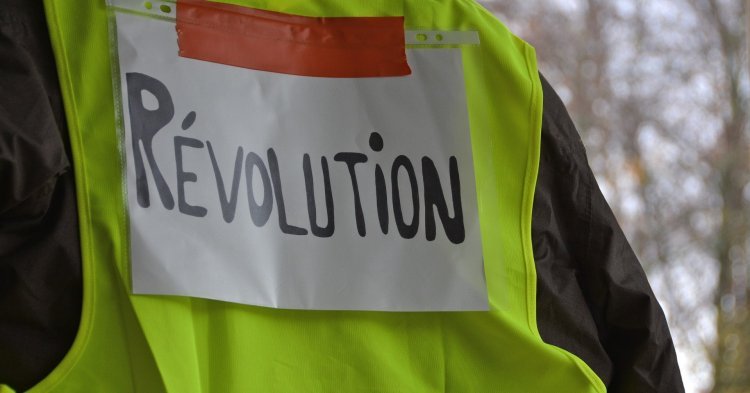Yet, it appears obvious that this riot targets, once more, the misguided condescending ways of the French government. The young President of the Republic, probably in reaction to the style claimed by his predecessor, declared that his presidency would be “Jupiterian”. He makes every effort to apply, in all its strictness, the Constitution of the French Fifth Republic introduced by Charles de Gaulle, and sometimes called “Bonapartist”. If, undeniably, this Constitution consorts with democracy, it does so in a very original way, that some pretend necessary to rule the country. In France nonetheless, despite everything, the power has remained firmly centralised for more than 800 years, so far before the “Jacobins”. The real French Revolution has not occurred yet.
Still today, France remains a monarchist country, an elective monarchy maybe, but a state where things are decided “in high places” before being explained to the citizens, and “consultations” happen afterwards (as we say now, with little regard for syntax). And when discontent rises, we consider that we haven’t been “pedagogic” enough. But we still do not think that we should listen.
Because, still today, the most present revendication is to “make oneself heard”. And this legitimate revendication of the citizens in any well-understood democracy is not recognised today in France, neither by the customs nor by the institutional structure. We then have to wait for the itching to be so irritating as to open one the “Grenelles”, other the “General Estates”, whose blaring conclusions are too often quickly buried. [1] Or, we retreat by sight in front of the street riots. Yet, from decentralisation (of the state services) in 1982 to an authoritarian gathering of the regions in 2015, without deigning to organise a citizen consultation (however prescribed by the Council of Europe’s Charter of Local Self-Government which was finally ratified by France in 2006), subsidiarity remains tirelessly flouted in France.
Experience shows that, in front of serious turmoil threatening the country’s unity and prosperity, a government generally works on getting out of it by the front door, by gathering the people around a strong proposal. It is dangerous and rarely efficient to go to war as some, unfortunately, sometimes choose it. In a pacific country, one attempts to reorientate the debates towards and through a reform capable of bringing about an invigorating consensus.
Engaging in the reform of our institutional framework
The time has come to grant the French citizens with dignity and responsibility. The time has come to allow them to express themselves in calm and confidence, and to listen to them on issues concerning their daily living environment and way of life. The moment has come to restore their proximity and to establish, for this purpose, a new division of powers between the levels of the French Republic’s democratic architecture. The time has come to reform this architecture around a principle essential to any modern democracy: subsidiarity. The protection of an illusory universal equality on the whole French territory must not serve anymore as a pretext for refusing to share power and responsibility in all fields where it is possible. Indeed, to be exercised freely, responsibility imperatively demands attributed means in terms of political and budgetary power of decision. It is in no way about resuscitating a medieval feudalism. Proximity (especially with human-scale regions) and subsidiarity are not contradictory with a “one and indivisible Republic”.
Of the President of the French Republic, legitimate guarantor of the county’s unity and who will remain unquestionably as such until the end of his democratically granted mandate, I demand to engage in an audacious reform of our institutional framework. Implement, in transparency and strictness, a constituent assembly whose works will allow to open a new era of understanding and respect, guaranteeing a recovered prosperity, peace and justice for the country. Hemicycles rather than roundabouts. [2] A place for everyone, and everyone at their place. This is called subsidiarity. This is called fed… oh wait no, sorry, no swear word!
The real French Revolution has not occurred yet.



Follow the comments: |
|
